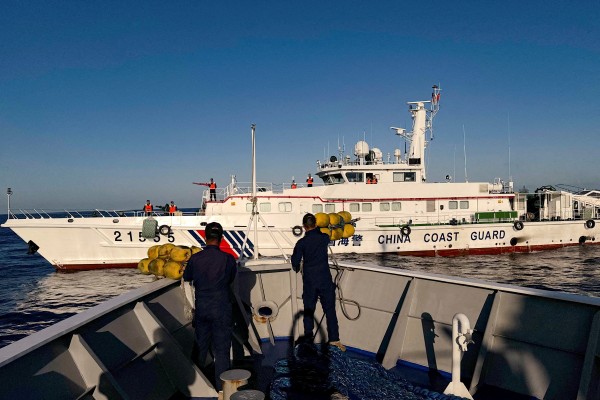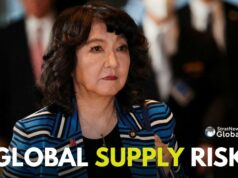The South China Sea (SCS) has seen worrying developments in recent months because of China’s growing military presence and hostility towards other nations in the region.
Political ties between China and the Philippines are deteriorating as a result of the PLA Navy’s aggressive manoeuvres against Philippine navy vessels and fishermen inside their Exclusive Economic Zone (EEZ).
China’s arbitrary and unilateral Nine and now Ten Dash Line that overlaps the EEZs of five ASEAN nations, is largely driven by energy politics. Apart from the Philippines, Vietnam and Brunei, Taiwan and Indonesia are the other parties affected by China’s expansionist moves.
Chinese Coast Guard ships routinely engage in risky manoeuvres including colliding with Philippine military vessels. They use water cannons and obstruct the supply routes to Philippine military sites at Scarborough Shoal endangering lives.
In the latest clash, a Philippine sailor was severely injured when Chinese forces blocked a resupply mission to the BRP Sierra Madre outpost at Second Thomas Shoal in the SCS. The incident resulted in damage to several Philippine vessels and the seizure of two rubber boats delivering food and supplies.
The coral ecology of the area is being destroyed as China develops and reclaims Sabina Shoal, making it the seventh artificial island close to the Philippines EEZ. Recently, the Philippines retaliated by sending a warship to stop the Chinese from reclaiming land in their EEZ.
Political energy in the SCS?
The SCS’s untapped oil and gas potential has led some to refer to it as the “Second Persian Gulf.” The abundant energy resources in the neighbouring coastal region of Scarborough and Ayungin Shoals may be the reason for China’s intimidating presence.
The Ministry of Foreign Affairs in Manila announced earlier in March, that it had received many maritime-related proposals from Beijing, but these had been turned down because they did not involve countries outside of the region and went against Philippine national interests. There were reports of up to 50 Chinese ships in the Scarborough Shoal that same month.
Despite tensions with Beijing, Manila just said on May 29 that it intends to access the SCS energy reserves in order to lower its energy prices. Notably, the Philippines Supreme Court declared the energy agreement between former President Duterte and China at Reed Bank to be unlawful in 2023, striking it down. Manila is currently looking for additional collaborators to explore these resources.
China said that the Philippines disregarded suggestions made for handling its bilateral relations. China has been an energy-dependent nation since 1993 and constantly seeks to acquire newer energy sources. The possibility of energy resources is another reason for the constant presence of Chinese rigs across the U-shaped line in the SCS.
Philippines response
Earlier this year, President Marcos while speaking in the Australian parliament, said he would not cede “one square inch” of territory to China and reiterated that post the clash, any arrest/casualty of a Filipino sailor would be considered an ‘act close to war’ and the nation will respond accordingly.
The Philippines is preparing for the “worst case scenario” and has taken a multipronged approach vis-a-vis China. At the diplomatic level, Manila has described China’s claim of “historic rights” in the SCS as baseless in the context of international maritime law. The Philippines regularly sends demarches to the Chinese foreign and defence ministries every time China makes a threatening move against its military.
After using up all available diplomatic options, Manila is bolstering its defences. To make sure there are no Chinese research vessels in the area, the Philippines constantly patrols its seas. It is utilizing its “sovereign choice” to ask friendly countries for defence hardware and expertise.
Enrique Manalo, the foreign minister, asked the region’s neighbours to uphold its right to territorial sovereignty in the SCS. Numerous nations have openly supported it, including the US, France, Australia, Japan, and India. To counter Chinese moves in the SCS, the US, Japan, Australia, and the Philippines have formed a Security Quad or Squad. Manila updated its defence pact with the US and gave it five more facilities to operate from.
Manila has agreed to pay $400 million to Japan for the purchase of five coast guard boats and is signing maritime cooperation agreements with neighbours including Cambodia, Vietnam, and Brunei even though the negotiations on the long-pending Code of Conduct between China and the ASEAN countries is yet to fructify.
India is backing the Philippines
External Affairs Minister S. Jaishankar reaffirmed India’s backing for the territorial sovereignty of the Philippines in the SCS. The Indian Navy often dispatches its vessels there to demonstrate support for the rules-based maritime order.
In addition to supplying the Philippines with Brahmos supersonic cruise missiles to bolster its coastal defence, India routinely engages in bilateral and multilateral military drills with the Philippine Navy to foster interoperability and capability building.
India is a significant stakeholder due to its moral commitment to international peace and security, in addition to the significant trade that flows through the SCS region.
New flashpoint?
After the Taiwan Strait, the Philippines EEZ is another possible flashpoint in the SCS. China frequently claims that foreign assistance for the Philippines is actually “external interference” and is “destabilizing the region.”
President Marcos deemed Beijing’s new detention order, which was announced on May 30, to be inappropriate. Manila is displeased with China’s belligerent stance and has appealed for international assistance.
The Gaza and Ukraine wars are a sobering reminder of the worldwide consequences of any regional conflict. As such, it is imperative that the international community continue to be actively involved in this matter before it becomes yet another regional hotspot, following West Asia and the Taiwan Strait.
Security Analyst, Author of Book Nine Dash Line: Deciphering the South China Sea Conundrum” and worked as a Consultant with MEA





